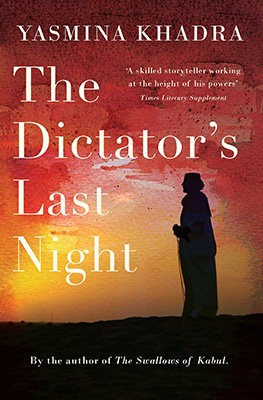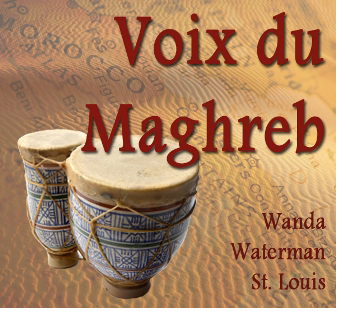 Book: The Dictator’s Last Night (link)
Book: The Dictator’s Last Night (link)
Author: Yasmina Khadra
“They have crossed out my slogans, disfigured the portraits of me that decorated the facades of buildings … Is that how people show love for their guide? Did this people love me sincerely, or was it merely a mirror reflecting back to me my own exaggerated narcissism?”
– from The Dictator’s Last Night by Yasmina Khadra
The dictator spoken of in the title is Muammar Gadaffi, the late Libyan despot famed for a level of pathological cruelty typical of prisoners at Sing Sing. A magnetic leader with a fascinating?albeit changeable?political mindset, he demonstrated a fierce readiness to hurt and destroy his enemies while cruelly exploiting the vulnerabilities of his followers.
It’s hard to think of an author more fitted for this than Yasmina Khadra. The name is a pseudonym (It’s actually his wife’s name) for Mohamed Moulessehoul, an Algerian military man who chose a female moniker to hide his avocation from an oppressive regime.
Khadra writes not only as someone versed in the complexities of human psychology and emotion, but as one who could well picture the final days of a sagging, bewildered Cain propped up by his few remaining scraps of military might. Khadra, with his compassionate insight, has been brave enough to crawl inside the mind of this monster as if it were a sewer pipe, looking for stars and flowers.
And Khadra does come up with a poetic picture: a former Bedouin well acquainted with open skies and ancient wisdom, an elegant man with keen insight and the capacity to sniff out the subtlest of emotions. But this richness of soul quickly merges into delusions of grandeur that permit him to act out his antipathies without remorse.
There’s only one way that a writer can manage to present such a man as Gaddafi in such a sensitive light: One has to separate the compartments of the protagonist’s mind, never letting the poetic side know what the evil side is capable of, and oblige the poetic side to believe in the greatness of the self and to justify its every sin.
Khadra does this quite cleverly and without showing the distaste he must have been feeling. He also scrutinises the dictator’s view of those who serve him. At first you don’t know if the trembling obsequiousness of his henchmen is the viewpoint of the dictator’s swollen ego or an objective rendition, but when you read about how those close to Gaddafi defended him to the death, going days without sleep and fasting so that their “Brotherly Guide” could eat, the worshipful subservience portrayed in the novel is quite believable.
But the dynamic takes on mythic proportions. The dictator’s inner voice becomes the dialogue of the tyrant that may very well lie dormant in all of us?that part of us willing to excuse our rages, hatreds, and vices in light of a belief in our own superior qualities and in the inferiority of others.
It’s an interesting technique, watching a takedown carried out from the loser’s perspective (much like the films about Hitler’s last days), showing not only the psychology of the leader who’s met his Waterloo but the sometimes perplexing beliefs of those who’ve chosen to go down with him.
Gaddafi is credited with having stirred up a hornet’s nest of Islamist extremism around the world. The writing of Yasmina Khadra, a Muslim who loves Steinbeck, has been much occupied with the dangers of such extremism. If you read French, you can have a look at the interview I did with him in 2010 (first part here and second part here), but if you don’t read French, the gist of the interview was a warning against religious dictatorship. Religion, Khadra maintained, must always be a private choice, never imposed from without, and always a matter of the heart.
The Dictator’s Last Night manifests seven of the Mindful Bard’s criteria for books well worth reading.
– It’s authentic, original, and delightful.
– It poses and admirably responds to questions that have a direct bearing on my view of existence.
– It’s about attainment of the true self.
– It inspires an awareness of the sanctity of creation.
– It displays an engagement with and compassionate response to suffering.
– It renews my enthusiasm for positive social action.
– It makes me appreciate that life is a complex and rare phenomena, making living a unique opportunity.
Wanda also writes the blog The Mindful Bard:The Care and Feeding of the Creative Self.

